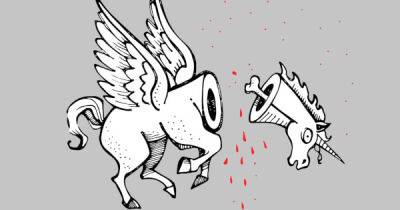The Observer view on Jeremy Hunt’s failure to tackle the scars left by austerity
More than a decade of austerity trapped Jeremy Hunt as he delivered his first budget, leaving him cornered. Allowing himself only puny resources to begin rebuilding Britain after years of underinvestment, he was left to boast about an extension of childcare funding that nursery providers quickly damned as too little to save many from going out of business.
The billions of pounds the chancellor needed to redress a multitude of financial shortfalls across the public sector were absent, even though the dire economic outlook he inherited from his predecessor, Kwasi Kwarteng, had eased somewhat. To mask his impotence, the chancellor mostly ignored the crumbling state apparatus to focus on eye-catching subsidies and tax breaks for business. In addition to the childcare funding, there was extra protection from energy price rises in April and millions of pounds to prevent another wave of swimming pool closures. This tinkering could not hide the fact that he failed to prevent the average household from suffering the largest fall in incomes adjusted for inflation since records began in the 1950s.
This seismic fall of 6% over two years to April 2024 can be measured another way, and that is to look to when inflation-adjusted incomes – the measure that considers the spending power of each pound in your pocket – will recover to the level seen in 2008. The Resolution Foundation thinktank says a combination of weak economic growth, high inflation and modest salary increases means the average pay packet is not expected to return to its 2008 level in real terms until 2026.
Such a record should, on its own, mean the end of this faction-ridden, mean-spirited government at the next election. It reveals how successive Tory chancellors from
Read more on theguardian.com














